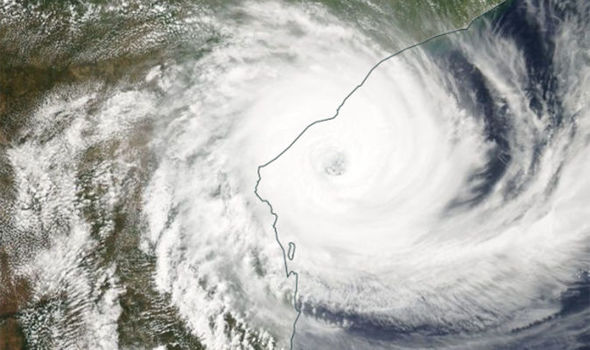A coalition of civil society organisations in South Africa has said developed countries and corporations that are emitting industrial gases must pay for the damage caused by Cyclone Idai in Zimbabwe, Mozambique and Malawi.
South African Food Sovereignty Campaign (SAFSC) Alliance argues that the recent extreme weather phenomenon must be seen in the light of global warming, which has resulted in extreme weather prompting a need to embrace green politics.
In a statement, SAFSC said America’s president Donald Trump and other rich countries that are in denial of global warming should be held responsible for the rebuilding of Mozambique, Zimbabwe and Malawi.
Cyclone Idai has left a trail of destruction in the three countries claiming over 600 lives while hundreds are still missing.
“Climate change is driven by petrostates, such as Trump’s USA leading the fracking boom, and carbon corporations. Rich industrial countries also owe the world a climate debt for 150 years of using coal, oil and gas for industrialisation,” said Courtney Morgan, on behalf of the organisation.
“From the standpoint of climate justice, we demand petrostates, carbon corporations and rich industrial countries contribute reparations to Mozambique, Zimbabwe and Malawi for the climate debt owed, so these countries can rebuild as part of the deep just transition”.
Morgan said scientific research has confirmed a link between Cyclone Idai and heating oceans linked to climate change.
“According to the UN IPCC 1.5C degree report, human activities have been responsible for approximately 1C degree increase in temperature globally since before the industrial revolution. If we continue to increase greenhouse gas emissions at the same levels, we are likely to reach a 1.5C degree increase within the next 20 years or sooner”.
SAFC noted that climate change is extremely serious in the African context, with high levels of inequality, poverty, limited resources, environmental destruction led by transnational corporations and indebtedness to rich countries.
“Africa did not cause the climate crisis and most Africans have very low per capita emissions compared to Americans or South Africans, for instance. The IPCC 1.5 degree Report tells us that Sub-Saharan Africa, has already been experiencing more frequent and intense climate extremes, and an overshoot of 1.5C degree increase will mean devastating consequences for the region. The temperature increases that the region will face are projected to be at least twice higher than the global average,” said the watchdog.
It has been argued that many measures could have been taken such as early warning systems, media mainstreaming climate news so extreme weather is monitored and anticipated, disaster management systems put in place to prevent a loss of life.
SAFSC said: “This has not happened because of climate denialism amongst political leaders, the media and states in the region.”
Therefore the organisation has started a media campaign #EndClimateDenialism to educate the public and advance climate justice alternatives, now, as part of the deep just transition to sustain life.
“Failure by the media to take climate science seriously imperils our society even more.”

